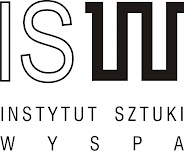A multi-stage international project initiated by curator Aneta Szylak and artist Hiwa K
When you take the first step towards the unknown, you are engulfed by the darkness of uncertainty. Co-existence is possible only in the face of the unrecognised. The unknown language is a tangled mass through which you penetrate with despair. It is a structure of sense and nonsense, an architecture of traps and a source of endless uncertainty. The story you tell contains a record of fear and hope.
Aneta Szylak and Hiwa K., fragment taken from "The Darkness Wounded" published at www.przemo-wojciechowski.com
Estrangement shows itself precisely in the elimination of distance between people.
Theodor Adorno
But we are meaning in the sense that we are the element in which significations can be produced and circulate.
Jean-Luc Nancy
The concept of Estrangement developed through a series of discussions and collaborative projects between Iraqi artist Hiwa K. and Polish curator Aneta Szylak as an attempt to create a form for mutual translation and collaborative work that is not restricted to one cultural format.
Aneta Szylak and Hiwa K., fragment taken from "The Darkness Wounded" published at www.przemo-wojciechowski.com
Estrangement shows itself precisely in the elimination of distance between people.
Theodor Adorno
But we are meaning in the sense that we are the element in which significations can be produced and circulate.
Jean-Luc Nancy
The concept of Estrangement developed through a series of discussions and collaborative projects between Iraqi artist Hiwa K. and Polish curator Aneta Szylak as an attempt to create a form for mutual translation and collaborative work that is not restricted to one cultural format.
Estrangement Team

Aneta Szylak, a curator and artist Hiwa K met in 2005 and collaborate since.
WHAT IS ESTRANGEMENT PROJECT?
Estrangement seeks to capture the tension between European cultures and what was once constructed as the ‘Orient’, investigated from different European cultural contexts of London, Gent and Gdansk, as well as Sulaimany and Hawler in Iraqi Kurdistan. While Europe and the Western world are not homogenous in cultural terms, there has often been an insistance on its coherence when confronting the invented face of an undefined enemy. While the West appears to deny having anything culturally in common with this reinvented ‘Other’, Estrangement attempts to find a way to reformulate these relations, and complicate them. Triggered by unfulfilled desire, loss and estrangement, and the fears, obsessions and denials that are produced through contemporary politics and its economic backgrounds – which both appear to be based on cultural constructions, and aimed at destroying them¬ – this project looks beyond simplistic strategies of representation, investigating how these cultures mirror, mimic and reflect one another; how they produce fictions, fragmented comprehensions, and hybridized understandings and misunderstandings. It points critically both at Occidentalism that formulates Europe as a normative concept, and at the legacies of colonialism, recognizing the historic entanglements in the imperial pasts of Britain, Belgium and Poland, and the traces of these in the make-up of these countries today. These questions do not have geographical borders, but rather cultural and psychological ones, thus the project searches for the zones of encounter that are not representative of cultures, but rather individual experiences.
Labels
Search This Blog
Followers


Institutional Project Grant
AMERICAN CENTER FOUNDATION
Partner in Sulaimany, Kurdistan, Northern Iraq

Contemporary Art Center Sulaimany
Research Grant
AMERICAN CENTER FOUNDATION
Estrangement Team and Friends
- Aneta Szylak
- Emily Pethick
- Hiwa K.
- Janna Graham
- Kit Hammonds
- Natasha Tebbs
- Vasif Kortun





